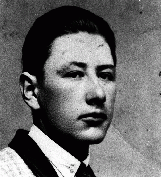You searched for: nazi germany
<< Previous | Displaying results 1001-1010 of 1276 for "nazi germany" | Next >>
-
First Letter to All Judges
ArticleLearn how the "First Letter to all Judges" increased the pressure on German judges to give verdicts and sentences according to Nazi principles and ideology.
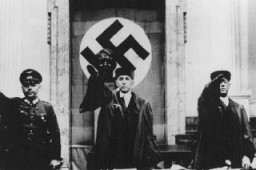
-
Sighet
ArticleLearn about the history of Sighet, birthplace of Elie Wiesel. The Jewish population of Sighet was deported to Auschwitz in May 1944. Most of the deportees were gassed on arrival.
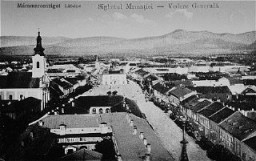
-
Julius (Julo) Levin
ID CardJulo was born to a Jewish family in the city of Stettin in northeastern Germany. From an early age Julo showed an interest in art; at 6 he had collected more than 3,000 pictures. His family hoped he would become a businessman, but his interest in painting absorbed all his energy. In 1926 he graduated from art school and by 1931 he secured his first commission in Duesseldorf. 1933-39: Until the Nazis came to power in 1933, Julo was a highly regarded artist. The Nazis' strict interpretation of art, however,…
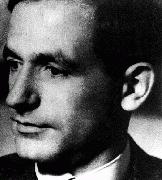
-
Heinz Rosenberg
ID CardHeinz was the youngest of three children born to a Jewish family in the German university city of Goettingen. His father owned a linen factory that had been in the family since it was founded by Heinz's grandfather. Goettingen had a small Jewish population, and only one synagogue. Heinz went to public school in the city. 1933-39: In 1933 the Nazis took power in Germany. A year later Heinz's family's factory was seized. Three SA men came to their house. An officer set a gun on the table and calmly informed…
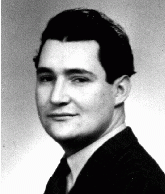
-
Franz Monjau
ID CardAfter secondary school, Franz studied painting at Duesseldorf's Academy of Fine Arts, eventually shifting to art education. He joined an avant-garde group rebelling against traditional painting. Later, he taught art to high school students. For Franz the drift towards fascism was frightening, as was the increasing antisemitism. But being only half Jewish, he did not feel worried about his personal safety. 1933-39: Hitler became chancellor of Germany on Franz's thirtieth birthday. Five months later Franz…
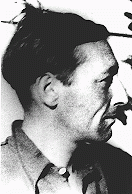
-
Emma Freund
ID CardThe second oldest of six children, Emma was raised by observant Jewish parents in a small town in southwestern Germany and they settled in the industrial city of Mannheim after World War I. There she had two children, a son in 1924, and a daughter in 1930. Emma helped her husband in his business. 1933-39: After the Nazis came to power, Emma's husband lost his business. Her sister Linnchen immigrated to South Africa, and the Nazis deported her brother Arthur to Dachau. When the Nazis burned down the local…
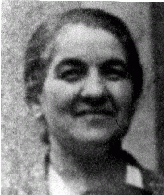
-
The "We Will Never Die" Pageant
Article"We Will Never Die" was a 1943 musical stage performance that raised awareness among Americans about the murder of European Jews. Learn more.
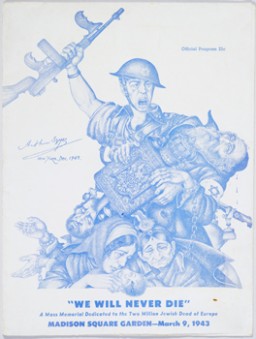
-
Martin Weiss
ArticleMartin Weiss and his family were deported to Auschwitz in 1944. Explore Marty’s biography and his description of arrival in Auschwitz.
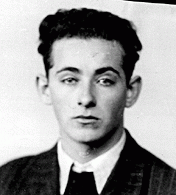
-
The Syrets Labor Education Camp
ArticleSyrets was a labor education camp established by the Germans outside of Kyiv. Learn more about Syrets prisoners and their daily life in the camp.
-
Johann Stossier
ID CardJohann was born to Catholic parents in the part of Austria known as Carinthia, where he was raised on the family farm. Johann enjoyed acting and belonged to a theater group in nearby Sankt Martin, which also happened to have a Jehovah's Witness congregation. He became a Jehovah's Witness during the late 1920s, actively preaching in the district around Sankt Martin. 1933-39: Johann continued to do missionary work for the Jehovah's Witnesses even after this was banned by the Austrian government in 1936. The…
